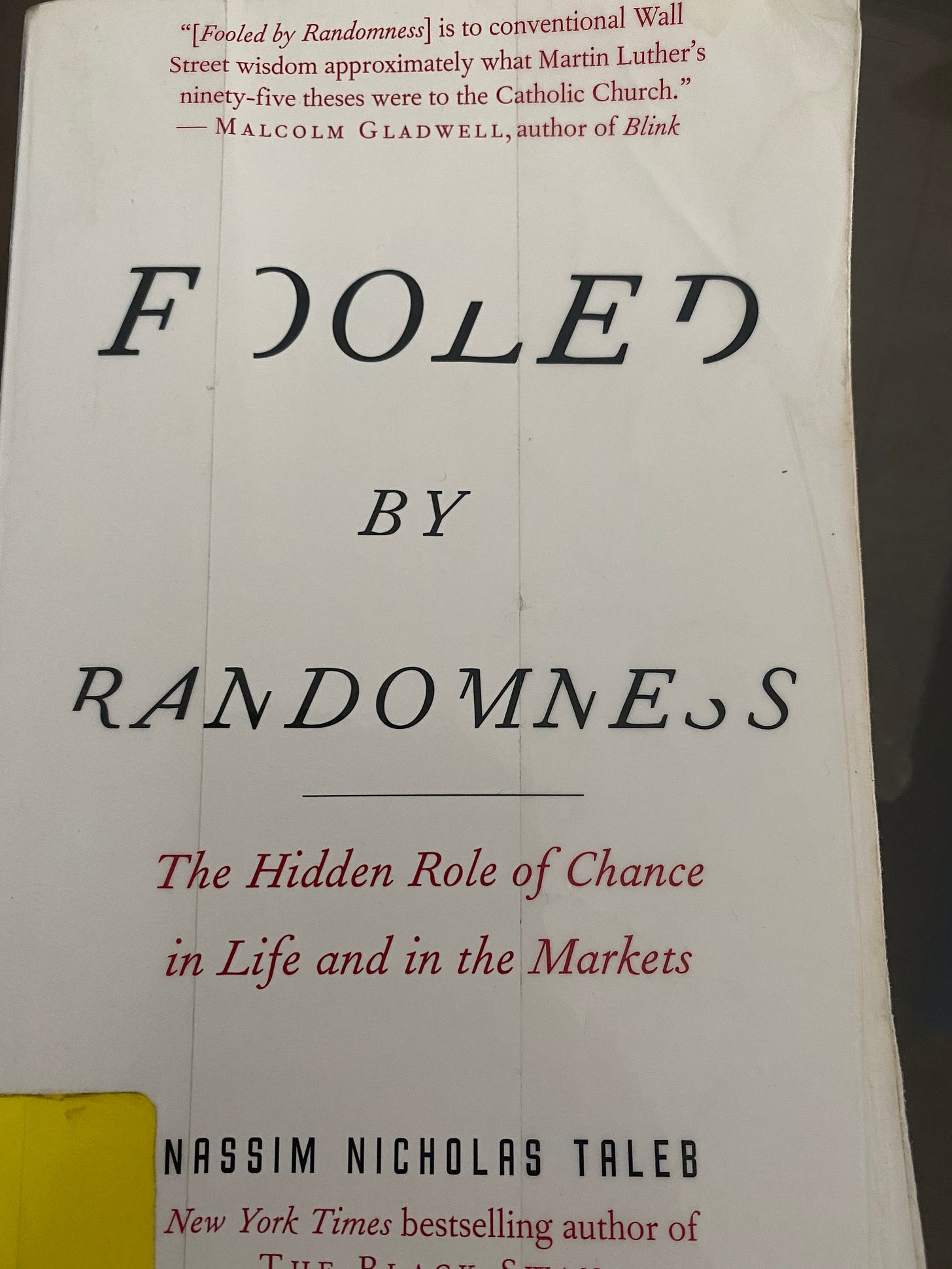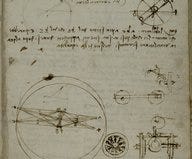Juan David's Newsletter - March 22, 2020
Hi there,
This is my first newsletter and this is more or less how future emails will look.
This week was an interesting one. The world recognized the severity of COVID-19, and many world-leaders took the necessary measures.
My school has been canceled indefinitely and I’ve been studying/learning at home. It’s an interesting process for both teachers and students.
On that note, this week has been super productive for me! It’s like a dream came true. I worked on my projects and got real traction on almost all of them such as finishing my website, starting this newsletter, finishing the writing of three essays, and starting to work on an interesting project (coming soon).
You’re Blind and You Have No Idea. This is How Statistics & Probabilities Can Help You See
If it’s easier, you can also read this article on my website.
Over the last few weeks, I’ve reaffirmed my position that a statistics class should be REQUIRED for every person before they are released into the open world of adulthood.
I was first introduced to the marvelous field of statistics when I was selected to attend a program at Argonne National Laboratory, a science and engineering research laboratory where interesting developments take place ranging from supercomputers to nanotechnology.
In this program, my team and I needed to figure out where the 1850s cholera outbreak broke out. We were given a set of tools such as statistics, coding, databases, machine learning, and many others. At the end of the program, my team found the exact street and source of the spreading of cholera. I was hooked.
I’m a voracious reader, and Forbes was one magazine I used to read monthly. One time, there was a very successful person who wrote about his life and work. He said one thing that I always remember. He mentioned that if he could do high school all over again, he would take a statistics course such as AP Statistics, and lessen his focus over classes such as calculus. He said statistics was critical to his success and the workforce would need more people who understand statistics because it is very hard to automate and human interpretation would always need to be there.
I took his advice and took AP Statistics during my senior year of high school. This class quickly became my favorite, and my appreciation and fascination only kept increasing and increasing. I can pursue and create so many businesses and projects with the help of statistics. Statistics makes me see clearly.
After seeing everything that has happened, it is dangerous to have a large number of people who don't know or understand statistics and the concept of probabilities. Many people are fooled by noise, lack a sense of judgment, and blindly believe what they see or what others say.
Statistics is KEY.
Why is it difficult for people to understand statistics and probabilities? Let’s try to understand why that happens.
According to Richard Peterson’s Inside the Investor’s Brain, “When an outcome is possible but not probable, people tend to overestimate its chances of occurring. This is called the possibility effect…Emotions in uncertain or risky situations are more sensitive to the possibility rather than the probability of strong consequences, contributing to the overweighting of very small probabilities.”
This is an important concept to understand because it shows how our brains process the world and how other factors such as emotions affect our decision-making without us even realizing it.
Our brains are not designed to understand probabilities (we suck at it). Whether someone wins or loses is irrelevant. What matters is what the other outcome would have been if you won or lost.
The controversial statistician and former options trader, Nassim Taleb, calls this, “Alternative Histories,” and he says, “One cannot judge a performance in any given field (war, politics, medicine, investments) by the results, but by the costs of the alternative (i.e, if history played out in a different way).”
For instance, let’s use the example of the current virus (COVID-19). Governments and authorities have two decisions (possibly more) to make.
Governments have a problem, which is uncertainty. They don’t know what will happen and that is exactly when probability comes into play.
The distinguished cognitive and mathematical psychologist, Amos Tversky said once that “In dealing with probabilities…most people only have three settings: “gonna happen,” “not gonna happen,” and “maybe.” Here (and frankly most cases), we just don’t know whether or not something will happen with 100% certainty, we can only estimate the probabilities.
Let’s explore two possible decisions by authorities:
Not taking steps to contain the virus that would cause deaths and hurt the economy hoping the virus will not spread.
Taking radical measures that would save lives and cause significant economic damage but avoid spreading of the virus.
What do you think we should do?
Before we decide, we need to understand that the quality of our decision will be predicated on what the other possible outcome could have been.
If the necessary steps are not taken, and it doesn't improve, the virus could spread, causing massive human and economic losses.
All preventive measures are taken early and seriously to avoid (or reduce) any spread. The virus will not spread (or barely spread) causing minimal losses.
The decision to do nothing could have worked out, but if it didn’t, the losses would be devastating. The decision to do everything that is possible, and if the virus does not spread, the losses would have been minimal.
Choice #2 seems like the obvious answer, but we cannot disregard the economic impact that this choice might have in the short-term. Shutting down the economy for a few months or even weeks comes with a cost. However, that is why decision-makers need to be long-term focused. While the short-term losses could seem like a lot, if no decisions are taken, the long-term losses would be catastrophic.
If you don’t understand probabilities, your answer would most likely have been 1 (that’s what I chose at first) but once you understand this concept, our decision-making vastly improves.
Conclusion? An understanding of statistics and probabilities is like putting on $2000 glasses. A type of lenses that makes the hidden visible, and the visible clearer.
Look at how fearful and uneasy the world has become, and you will tell me which decision would have been better. (Hint: it’s not #1)
An understanding of a concept such as probabilities is crucial in our lives, and not only to governments or authorities. Frankly, most of our lives are predicated by the decisions we make and most (to not say all) of them are uncertain. Once you understand such a powerful concept, you will have a better life, you will make better decisions, you will see the world clearly, and you will avoid getting fooled by your brain and your emotions.
If you’re interested in learning more about this concept, I’d recommend you do the following:
Read Nassim Taleb’s book (Fooled by Randomness)
Follow me on Twitter at @jdcampolargo (I regularly post about similar concepts)
Read my article on Statistical Thinking
Take a free online class (if you want to get more technical)
Sometimes the ignorance of one sadly affects the lives of millions, and I hope that today’s and future decision-makers are able to understand this intriguing concept of probabilities to reduce the suffering of the world. Thank you!
Curiosities:
What I’m reading

I recently finished reading Fooled by Randomness by Nassim Taleb. This was a fascinating book to read and possibly one of my favorite books on statistics and decision-making. Here are some of my favorite quotes:
“Probability is not a mere computation of odds on the dice or more complicated variants; it is the acceptance of the lack of certainty in our knowledge and the development of methods for dealing with our ignorance.”
“The problem with information is not that it is diverting and generally useless, but that it is toxic.”
“Common sense is nothing but a collection of misconceptions acquired by age eighteen. Furthermore, What sounds intelligent in a conversation or a meeting, or, particularly, in the media, is suspicious.”
I’d highly recommend you check it out.
What I’m learning more about
There will be incredible investment opportunities in the next couple of months. I’m researching companies to invest in and hold for the next 20-30 years. Buying opportunities like this don’t happen often and I’m excited to see what I could find. Always do your own research!
What I’m doing
Two of my goals for this week: 1) Youtube Channel 2) Coding.
I didn’t have time to work on these two this week, but I can’t wait to see what I can accomplish this week. Who knows? I might even have 2-3 videos on Youtube by next Sunday.
What I found
This week UNESCO (The United Nations Educational, Scientific and Cultural Organization) gave access to the World Digital Library. They have intriguing links and information. I found this:

“In addition to creating masterpieces of Renaissance art, Leonardo da Vinci (1452‒1519) was interested in technology. He developed plans for a number of inventions, some with potential military uses, including a kind of armored tank and a deep-sea diving suit.
He was particularly fascinated by the possibility of human mechanical flight. He produced more than 35,000 words and 500 sketches dealing with flying machines (he envisaged both a glider and a helicopter), the nature of air, and the flight of birds.”
I wonder how many inventions we could come up with just by looking at Da Vinci’s old notebooks.
This week was a tough one for many people, socially and emotionally. I hope you are staying safe and healthy. I truly think we will overcome this soon. The Manhattan Project for the virus will end up being the Palo Alto Project. When we combine massive amounts of intelligence, we will see breakthroughs and solutions way ahead of our timelines.
See you next Sunday!
Best Regards,
Juan David Campolargo



